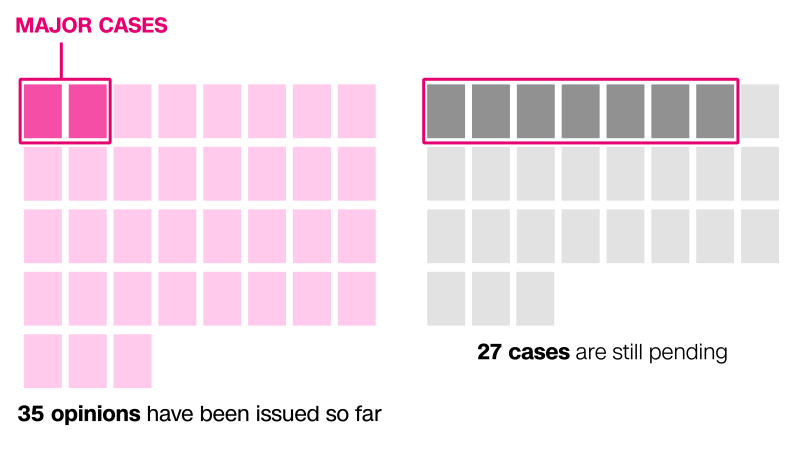As the Supreme Court heads into its summer recess, attention is sharply focused on its final series of opinions for the term, notably addressing pressing societal dilemmas surrounding birthright citizenship and gender-affirming care. These rulings are critical, as they could potentially reshape major legal precedents and affect countless Americans’ lives.
Currently, CNN is closely monitoring key cases for the 2024-2025 Supreme Court term, which includes noteworthy decisions made thus far. Among these recent rulings is a significant case named Ames v. Ohio. This case revolved around allegations of discrimination, wherein a woman claimed that she faced bias from her gay boss due to her heterosexuality. The Supreme Court unanimously ruled in favor of the plaintiff in early June, establishing a precedent that could simplify the process for similar “reverse discrimination” claims in various jurisdictions across the country.
Additionally, the Supreme Court made headlines with its dismissal of a lawsuit filed by the Mexican government. The case sought to hold American gun manufacturers liable for their alleged role in exacerbating gun violence along the U.S.-Mexico border. The Mexican government contended that these manufacturers intentionally marketed firearms to drug cartels and gangs. However, in a unanimous 9-0 ruling, the Court determined that the Mexican government’s claims did not convincingly demonstrate that the firearm manufacturers had facilitated illegal sales, thereby dismissing the case.
In the midst of these developments, the Supreme Court has yet to make determinations on some of the most consequential cases of the term. One of the most critical issues awaiting a ruling concerns birthright citizenship. This long-standing legal principle ensures that all individuals born on U.S. soil are granted citizenship, irrespective of their parents’ immigration status. A key aspect of this case is whether an executive order from former President Donald Trump, aimed at denying birthright citizenship, holds any legal ground. This ruling could fundamentally alter the interpretation of existing legal norms regarding citizenship in the United States.
Another significant case involving gender-affirming care is also under review. This particular case questions the legality of Tennessee’s ban on gender-affirming treatments, which restricts access to puberty blockers and hormones for transgender minors and imposes penalties on healthcare providers who contravene this law. The situation is further complicated as more than half of U.S. states have enacted similar restrictions on medical care for transgender youth. Conversely, sixteen states and the District of Columbia have instituted “shield” laws designed to protect access to transgender healthcare treatments, highlighting the stark divide in state-level policies.
The Court will also deliberate on a pressing case in which parents from Montgomery County Public Schools in Maryland are suing the state board of education. They assert that the board’s practices violate their religious beliefs by not allowing parents to opt out of reading LGBTQ+ inclusive material in elementary school curricula. This case emphasizes an ongoing movement to increase parental rights within educational settings. The conservative majority within the Supreme Court, which holds a 6-3 advantage, appears predisposed to side with the parents in this matter, potentially indicating a shift towards greater parental control over educational content.
As the Supreme Court continues to navigate these pivotal issues, the ramifications of its rulings will undeniably resonate across the United States, influencing both legislation and the personal lives of countless Americans. The anticipation surrounding the Court’s decisions remains palpable, as stakeholders in various communities await insights that could reshape the legal landscape surrounding citizenship rights, healthcare access, and educational regulations in the country.



